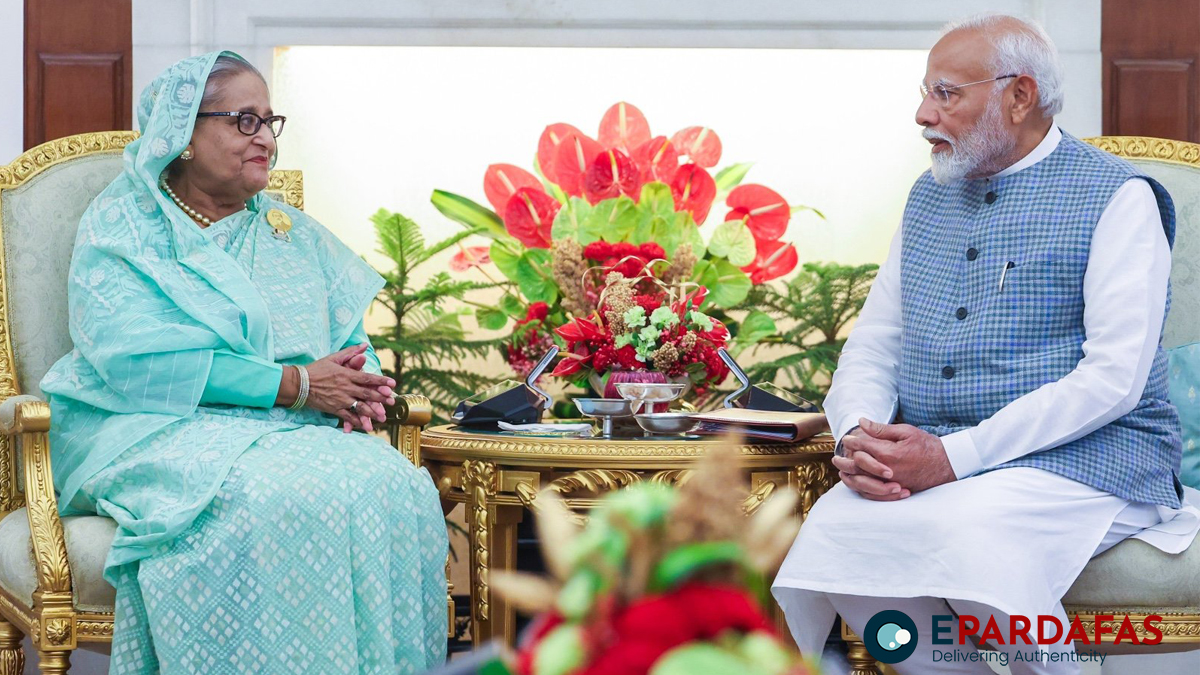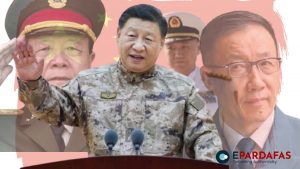
India and Bangladesh Enhance Defense Ties Amidst Regional Rivalries
India and Bangladesh took significant steps to strengthen their defense relationship on Saturday by signing agreements aimed at expanding cooperation in maritime security, ocean economy, and the space and telecommunications sectors. These agreements underscore New Delhi’s role as a regional power and a counterbalance to China’s growing influence.
The agreements were signed during Bangladesh Prime Minister Sheikh Hasina’s visit to India, marking the first visit by a foreign leader since Narendra Modi assumed office for a third term two weeks ago. Modi welcomed Bangladesh’s decision to join his Indo-Pacific Oceans Initiative, which aims to enhance regional cooperation among India’s maritime neighbors. He emphasized that these deals are part of India’s neighborhood-first approach.
Despite its strong trade ties with China, Bangladesh faces challenges in maintaining a balanced relationship with Beijing while also fostering diplomatic and trade ties with India and the United States, China’s primary rivals. Bangladesh’s garment industry, a crucial sector generating over 80% of the country’s foreign currency from exports, relies heavily on China for raw materials.
Prime Minister Hasina highlighted the importance of boosting the sharing of river waters and enhancing cooperation in the power and energy sectors. During her visit, she met with Indian industry leaders, inviting them to invest in Bangladesh’s infrastructure, including ports, waterways, rail, and road connectivity. India has loaned Bangladesh $8 billion over the past eight years to support these infrastructure projects.
Since Hasina’s Awami League party came to power in 2009, she has addressed India’s concerns regarding Indian militant groups finding refuge in Bangladesh. However, challenges remain, such as the elusive agreement on sharing the waters of the River Teesta and the longstanding issue of illegal immigration from Bangladesh to India.
India is Bangladesh’s largest export destination in Asia, with trade between the two countries reaching $15.9 billion in the financial year 2022-23. India mainly exports cotton, motor vehicles, sugar, iron, steel, aluminum, and electronic equipment to Bangladesh, while it imports cereal, pulp paper, board, cement, and raw hides from Bangladesh.
As India and Bangladesh continue to navigate their complex regional dynamics, their enhanced defense cooperation reflects a strategic move to reinforce their partnership and counterbalance China’s influence in the region.













Comments